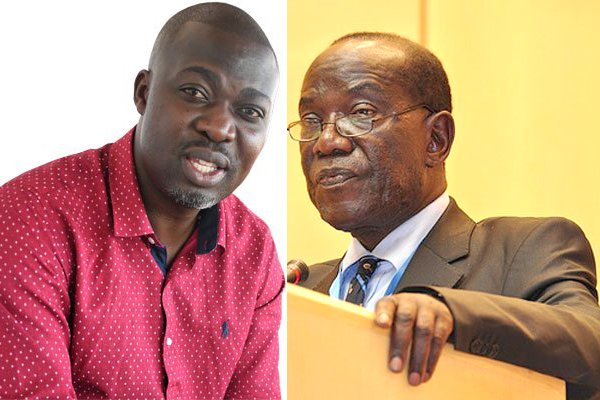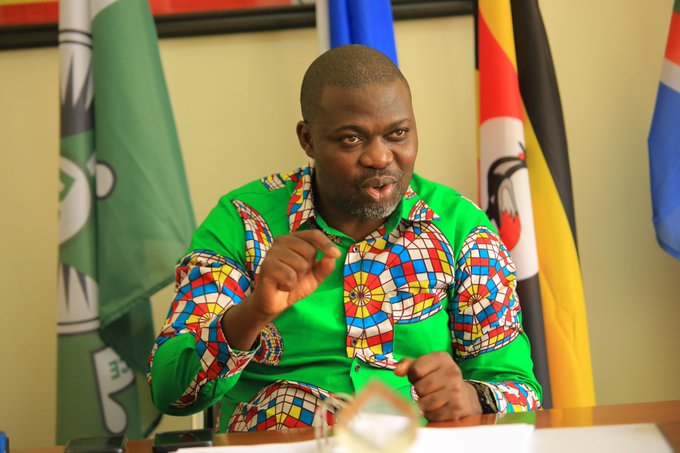Everyone thought it was impossible. They thought the VP had a lot of power. Many thought I was joking when I told them that I was going to stand as MP [Member of Parliament].
My family believed in me. We sat down and made a game plan, and consulted a few people. The late Bishop [Emeritus of Masaka Diocese] John Baptist Kaggwa was one of those we consulted, and a few other politicians,” MP-elect of Bukoto Central, Richard Sebamala, recollects.
He beat Vice President (VP) Edward Kiwanuka Ssekandi to emerge victor in the Bukoto Central race. To his recollection, Bishop Kaggwa was convinced that Ssekandi would not stand as MP again.
Beginning
In June 2019, Sebamala resigned his job as the Iganga Municipality principal executive engineer. Four months prior, he had made up his mind to join elective politics.
In February that year, he attended a public function in Bisanje Parish, Bukoto Central, where the outgoing MP had been invited as guest of honour.
“I made a donation of Shs10m and he gave Shs2m. I looked at him, he looked very tired so we decided to relieve him of his duties. He is still my consultant on issues to do with the constituency,” he explains.
Sebamala acquired a Bachelor’s degree in Civil Engineering from Kyambogo University in 2005. He went on to pursue a Master’s degree in Civil Engineering from the United States of America.ADVERTISEMENT
He also acquired a another Master degree in Leadership and Management at Uganda Management Institute.
Sebamala started out his career in engineering as a trainee in Zimwe Construction, then Multiplex Uganda, then later as a contractor before joining Iganga Municipality as its principal executive engineer in 2013.
Joining politics
The man who defeated the VP in Bukoto Central almost had a false start. At the time he began making his interest to contest as MP known, Covid-19 broke out, meaning movement was restricted and so he could not freely move and make consultations.
Even when nominations were declared open, he says it was challenging owing to encumbrances created by some of his opponents who were convinced that he was a threat.
“We had been jailed before. We had been blackmailed…very many things had happened to us during consultations. Finally, there we were, nominated,” he recalls.
Sebamala says his nomination felt like “a win” because it was a day he thought would never come. “The day I went for nomination was like voting day. More than 1,000 people were at the grounds just to be sure that I had been nominated.”
Then a letter from the Electoral Commission (EC) came in stopping campaigns ahead of revised standard operating procedures (SOPs). Then three weeks to the election, campaigns could not go on in Masaka owing to a spike in Covid-19 numbers in the district.
“Even when there was curfew, they continued to campaign which was unfair to us. The incumbent’s team was let to continue campaigning door-to-door, giving out sugar, soap and money,” he claims.
That, however, didn’t shake Sebamala and his team. “The eight hours we had to campaign during day, we used maximally to show the people that we really needed change. Henceforth, people believed in us and trusted us by voting us into office,” the youthful leader adds.
Despite the hurdles, Sebamala was able to interact with the electorate. He came face-to-face with the realities of poorly stocked health centres, and poor service delivery in schools, among other things.
With the victory, the MP-elect plans to remain close to the electorate and solve issues that affect them from their point of view.
“We are trying to do a baseline survey for education, health, social-economics, and roads to see where he (Ssekandi) has stopped and where we are beginning such that in five years we can account for our progress,” he says.
“I always tell my brothers and sisters in the Opposition who say [President] Museveni is bad that that is not the answer, but rather opening the eyes of the public to see that the money being stolen is meant to buy their drugs, support their children’s education and so on. When their eyes are open to the realities of corruption, they will demand their victory. They will demand their money.
“Uganda is in a phase where everyone is calling them for loans. There is no accountability and respect of opinion.”
He says Uganda’s resources are not equitably used, but rather benefit a few corrupt people. In the end, even as the country borrows more, it is not sunk into national treasures and projects.
Sebamala, who stood on the Democratic Party (DP) ticket, says it is not about parties. “When we go to health centres and there is no medicine, it is not about DP or National Unity Platform [NUP]. I believe that in Bukoto Central, we are phasing out parties. We are supposed to move as one,” he argues.
Projects in constituency
There are a number of on-going projects in the constituency. These include the fruit and glass factories, roads President Museveni had highlighted for rehabilitation and construction, as well as power supply.
“The President thinks many of these have been done, but they have never been completed, 10 years now,” he adds.
He ran his campaign on what Ssekandi had potential to do, but failed to deliver.
In a few weeks, Sebamala will be taking oath and wants to serve in a Parliament that is respected.
“I wouldn’t want to be part of a Parliament that is going to collapse before our eyes. It is Parliament that has the mandate to effect change in the leadership of the country.”
Simple yet articulate, he was born and raised in Masaka. His mother, Betty Elizabeth Nanyonga, is a midwife, while his father, Cyrus Ndawula, is an electrician. He is the second born and has eight siblings.





